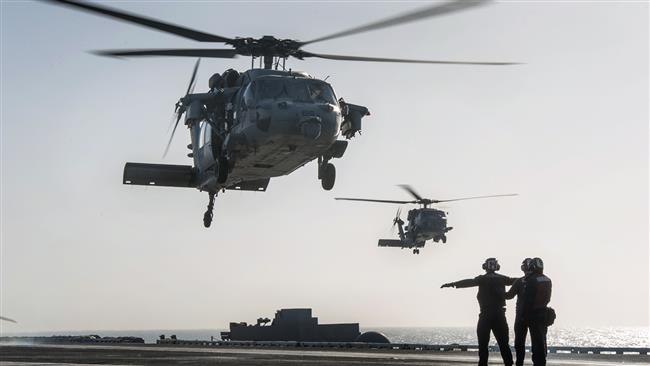US airlifts Daesh terrorists in Syria for 2nd time in a week: Monitor


For the second come this week, a helicopter operating under the US-led coalition has transferred members of the Daesh terrorist group in Syria’s eastern Dayr al-Zawr Province, a UK-based monitoring group says.
The so-called Syrian Observatory for Human Rights (SOHR) said the airlift was conducted in the town of al-Tabani, on the western outskirts of Dayr al-Zawr, on Saturday.
Syrian sources said that the operation was accompanied by the US-backed Syrian Democratic Forces’ artillery fire.
The sources speculated that the airlift was possibly meant to transfer US mercenaries fighting alongside Daesh or the terror outfit’s ringleaders who sought to defect.
On Thursday, the SOHR reported a similar operation, during which US helicopters took four Daesh members and a civilian from a house used as an arms depot in Beqres, a suburban area east of Dayr al-Zawr.
The five people transferred during the operation included a foreign bomb expert, three Egyptian Daesh members and a civilian, the report added.
The developments come at a time when Daesh has retreated from much of the territory under its control amid sweeping advances by Syrian army soldiers and allied fighters on the battlefield.
The US has long been accused of colluding with Daesh to provide safe passage and logistic support to members of the Takfiri group in conflict zones.
The US and its allies have been bombarding what they call Daesh positions inside Syria since September 2014 without any authorization from the Damascus government or a UN mandate.
The air raids, however, have on many occasions resulted in civilian casualties and failed to fulfill their declared aim of countering terrorism.








